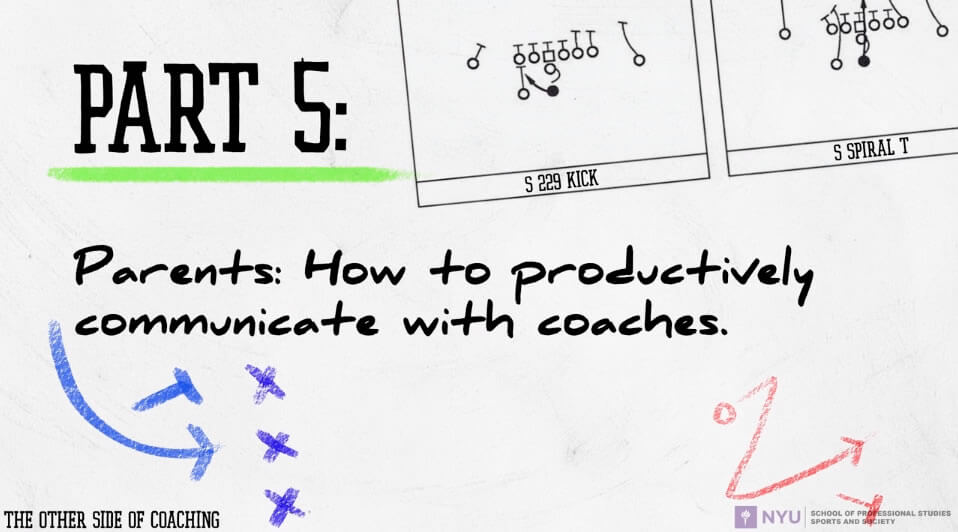Collaborating with Parents

Today, youth sports are struggling with an identity crisis. As parents and coaches, are we living vicariously through our children and selfishly acting in our own interests? Are we trapped in our memories of the past and trying to recapture that faded glory through our children? Or has youth sports become a social scene for parents and coaches where teachable moments are squandered on pettiness and favoritism?
At all times, parents and coaches must act in the best interests of the children. One must always remember that parents, coaches, and teachers are the backbone of a child’s athletic experience. Parents and coaches must communicate and collaborate on making an honest attempt at diagnosing a game plan that provides the child with opportunities for personal growth, comradery, and a sense of belonging.
Parents can be viewed as both assets and liabilities when it comes to youth sports. If a parent is willing to let go of their own feelings, opinions, and even their ego, a child can flourish under the right model of leadership. Parents must respect the athlete-coach relationship, but carefully monitor it from afar.
Parents must respect the environment between an athlete and their coach so a bond of trust can be built between the two. Parents need to be cognizant of the extraordinary learning and mentoring experiences that can take place between athlete and coach.
Let’s be honest, our children will face adversities in youth sports. Whether it is issues with playing time, injuries, costly errors in athletic contests, or even personality conflicts with teammates or coaches, we need to initially allow our children to make an earnest attempt at working through these matters with their coaches. Success in the midst of adversity breeds character and confidence. However, parents are still monitoring the situation from afar and still have their fingers on the pulse of the situation.
It is imperative that parents respect the coach and do everything they can to understand the coach’s philosophies, expectations, and leadership style. The coach must be clear with the parents on how they are maintaining reasonable expectations and providing everyone with an appropriate checks and balance system. Coaches need time and space to get to know their athletes and to develop their own strategies for communication and teamwork. Also, coaches need to find out what their athletes are made of and what makes them tick. Most importantly, a coach needs to find an effective way of building, developing, and nurturing an athlete’s self-esteem.
Approaching a coach at the conclusion of an athletic event and interrogating them for their decisions or actions is not an effective use of anyone’s time. Emotions are high and things are said in haste. Conversations a day or so later can be more productive and civil. Take time to digest all of the information and always remember respect is a two-way street.
However, there are times where a coach might not be acting in the best interests of your child and a conversation needs to occur immediately. Instead of confronting a coach before or after an athletic event, devise a strategy.